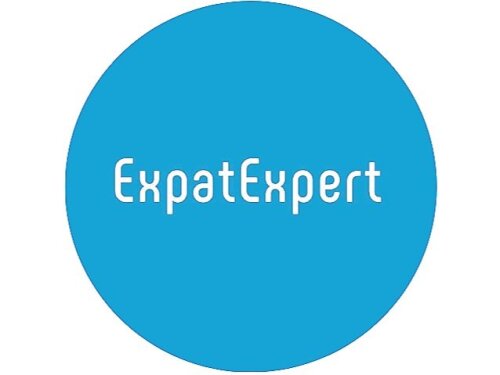Best Marriage Lawyers in Bogota
Share your needs with us, get contacted by law firms.
Free. Takes 2 min.
Free Guide to Hiring a Family Lawyer
List of the best lawyers in Bogota, Colombia
About Marriage Law in Bogota, Colombia
Marriage in Bogota, Colombia, is governed by national Colombian law with some unique local considerations and practices. Marriage is a legally recognized union between two people that establishes rights and obligations in family and property matters. Both civil and Catholic (or other religious) ceremonies are common in Bogota. Civil marriage is performed before a Notary Public and is the most straightforward route for both Colombian citizens and foreign nationals. Colombian marriage laws focus on mutual consent, legal capacity, absence of impediments, and proper registration, making the union legally valid and enforceable.
Why You May Need a Lawyer
Many individuals facing marriage in Bogota may need legal assistance for several reasons. Common situations include dealing with prenuptial agreements to define property rights, clarifying the legal requirements for foreign nationals, ensuring the proper documentation for marriage involving minors or divorced individuals, and processing marriages when one or both partners cannot be present. Lawyers are also crucial in representing your interests in cases of annulment, complex family situations, recognition of foreign marriages, and protecting assets or children from previous relationships. Legal advice helps ensure rights are protected and all processes are completed in accordance with Colombian law.
Local Laws Overview
Colombian marriage law is mostly governed by the Civil Code, Family Code, and various national statutes. The legal age for marriage is 18, or 14 with parental consent. All marriages - civil, religious, or foreign - must be registered with the Colombian Civil Registry to have legal effect. Key legal requirements include documentation showing identity, marital status, and capacity to marry, including prior divorce or death certificates when relevant. Bogota's notaries play a major role in conducting civil marriages and processing related legal documents. Special procedures may apply for binational marriages or unions where one partner is not a Colombian citizen.
Frequently Asked Questions
What are the main types of marriage in Bogota?
The two main types are civil marriage, performed by a Notary Public, and religious marriage, which must then be registered with the civil authority to have legal effect.
What documents are required for a civil marriage?
Typically, you need national identification, birth certificates, proof of single status, divorce or death certificates if previously married, and sometimes a prenuptial agreement.
Can foreigners get married in Bogota?
Yes, foreigners can marry Colombians or other foreigners in Bogota. They must provide additional documentation such as valid passports and proof of legal status in Colombia, with documents often needing to be apostilled and officially translated.
Is a prenuptial agreement common or required?
Prenuptial agreements are not required, but are fairly common, especially when there are significant assets or prior relationships. They must be drafted and signed before the marriage by a notary.
What happens if one party is divorced?
If previously married, you must present a certified copy of the divorce decree, and any related documents showing the dissolution of prior marriages before you can marry again.
Can same-sex couples marry in Bogota?
Yes, same-sex marriage is legal throughout Colombia, including Bogota, as of 2016. All legal requirements and processes are the same as for opposite-sex couples.
How is property managed in marriage in Colombia?
Unless a prenuptial agreement states otherwise, Colombia follows a community property system where assets acquired during the marriage are shared equally.
Are religious marriages legally binding without civil registration?
No, for a religious marriage to have legal effect, it must also be registered with the Colombian Civil Registry.
Can I get married by proxy in Bogota?
Colombian law allows marriage by proxy under special circumstances, such as when one party is abroad, but this requires strict legal procedures and permissions.
What if I want to get married in Colombia but live abroad?
Many couples residing abroad come to Bogota to marry. Work with a lawyer or local notary to prepare necessary documents, and allow additional time for authentication and translation requirements.
Additional Resources
If you are seeking further assistance about marriage in Bogota, consider the following resources:
- Colombian Civil Registry (Registraduría Nacional del Estado Civil) for marriage registration and documentation
- Notaries (Notarías) throughout Bogota for civil marriage and legal document processing
- Ministry of Justice and Law (Ministerio de Justicia y del Derecho) for legal guidance and regulations
- Colombian Bar Association (Colegio de Abogados) for legal representation and referrals
- Family Support and Orientation Centers (Centros de Atención a la Familia) for counseling and information
Next Steps
If you need legal assistance regarding marriage in Bogota, your first step should be to collect all relevant personal documents, such as identification, birth certificates, and any proof of prior marriage dissolution if applicable. Consult with a qualified family law attorney or a trusted notary in Bogota who can guide you through the specific legal requirements and processes. They will help you draft any necessary prenuptial agreements, ensure your documentation is complete and compliant, and represent your interests during the registration process. Taking early legal counsel can prevent complications and secure your rights before, during, and after marriage in Bogota, Colombia.
Lawzana helps you find the best lawyers and law firms in Bogota through a curated and pre-screened list of qualified legal professionals. Our platform offers rankings and detailed profiles of attorneys and law firms, allowing you to compare based on practice areas, including Marriage, experience, and client feedback.
Each profile includes a description of the firm's areas of practice, client reviews, team members and partners, year of establishment, spoken languages, office locations, contact information, social media presence, and any published articles or resources. Most firms on our platform speak English and are experienced in both local and international legal matters.
Get a quote from top-rated law firms in Bogota, Colombia — quickly, securely, and without unnecessary hassle.
Disclaimer:
The information provided on this page is for general informational purposes only and does not constitute legal advice. While we strive to ensure the accuracy and relevance of the content, legal information may change over time, and interpretations of the law can vary. You should always consult with a qualified legal professional for advice specific to your situation.
We disclaim all liability for actions taken or not taken based on the content of this page. If you believe any information is incorrect or outdated, please contact us, and we will review and update it where appropriate.














